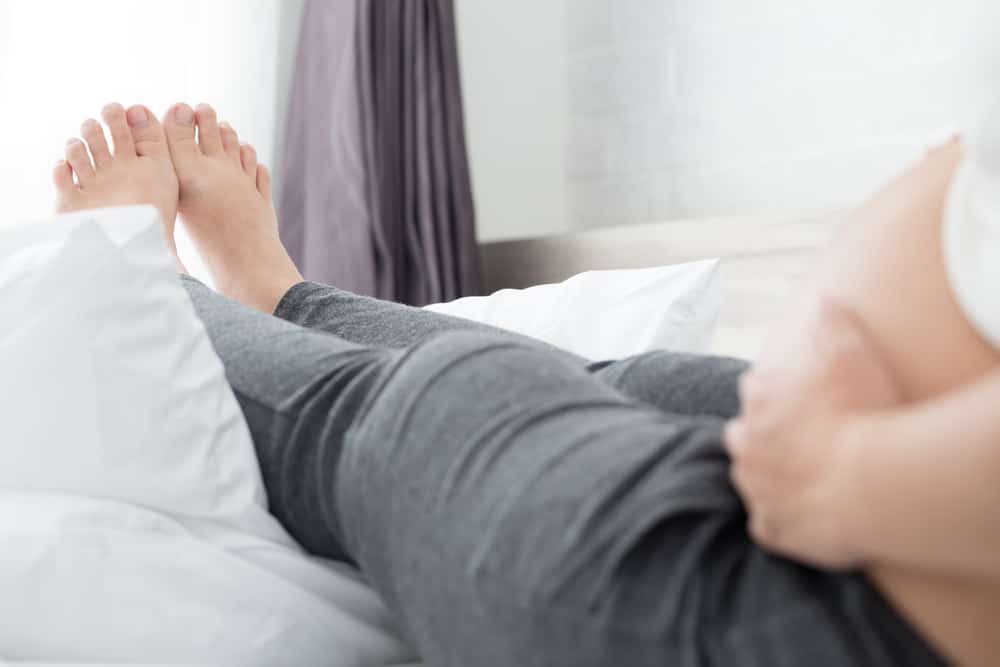Being told you have an ovarian cyst often leaves you with more questions than […]

Swelling is otherwise known as “oedema”, which usually peaks in the third trimester as the pregnancy belly grows to its biggest. You may notice this when you start experiencing difficulty fitting into your usual shoes or having a mark where your ring usually sits. Don’t worry when that happens – you are not alone!
Swelling in pregnancy occurs because your total body water volume increases during pregnancy and as the day progresses, you will find the extra water gathering in the lowest parts of your body. In other words, it is normal for you to notice that the swelling is worst towards the end of the day.
Another reason why swelling in pregnancy happens due to pressure from your heavy womb resulting in changes in your blood flow in your legs – this can cause you to have oedema in your legs.
“Normal” swelling in pregnancy typically occurs in your hands, legs and feet. It is common and it sucks, but should not cause you too much discomfort or hinder you in your usual daily activities.
There are 2 dangerous conditions in pregnancy that can be associated with “excessive swelling” – they are pre-eclampsia and deep vein thrombosis.
Pre-eclampsia is a condition where there is pregnancy-induced high blood pressure, most commonly in the third trimester, which is associated with loss of protein in the urine (proteinuria). This results in oedema which can occur in the hands, legs, feet or even face. Associated symptoms to look out for include headaches, blurring of vision and pain in the gastric region. If you think you may be having pre- deep vein thrombosis eclampsia, it is important to alert your ObGyn as soon as possible. This is because pre-eclampsia is a dangerous condition that can progress to eclampsia, where you may experience seizures.
Deep vein thrombosis (DVT) refers to the formation of a blood clot in the deep veins of your leg. Pregnant women are more prone to developing DVT due to increased viscosity of their blood. Symptoms suggestive of DVT include sudden leg swelling, warmth, redness and/or pain – and these usually affects one leg only. The danger of DVT is a potentially fatal condition called pulmonary embolism, where part of the blood clot in your leg can break off and travel to your lungs. If you suspect you may be having a DVT, you must inform your ObGyn immediately for further evaluation.
There are many ways you can try to reduce the discomfort associated with pregnancy swelling.
Here are some of the Dos:
Elevate your legs and feet above your heart – do this whenever you can; getting a stool or footrest to prop your legs up when you are seated can help. Similarly, when you’re sleeping, do use a pillow or two to elevate your legs.
Wear compression stockings – these improve the circulation in your legs and relieve swelling.
Go for comfortable footwear – toss your high heels and opt for supportive footwear.
Keep well hydrated – to flush out excessive sodium from your system.
Keep active – regular movements like walks and gentle exercise can help reduce swelling.
Here are some of the Don’ts:
Avoid standing for long periods of time – try instead to take frequent breaks to rest and elevate your legs.
Avoid excessive salt intake – watch the sodium intake in your diet as it can worsen your swelling
Above all, don’t worry too much. You will be back to your (non-swollen) state some time after you deliver your baby!
Being told you have an ovarian cyst often leaves you with more questions than […]
Chronic bloating. Lower back pain. Fatigue that lingers even after rest. These are symptoms […]
Many women live with Polycystic Ovary Syndrome (PCOS) without realising fact from fiction. This […]





Aster Gynaecology © | All Rights Reserved.